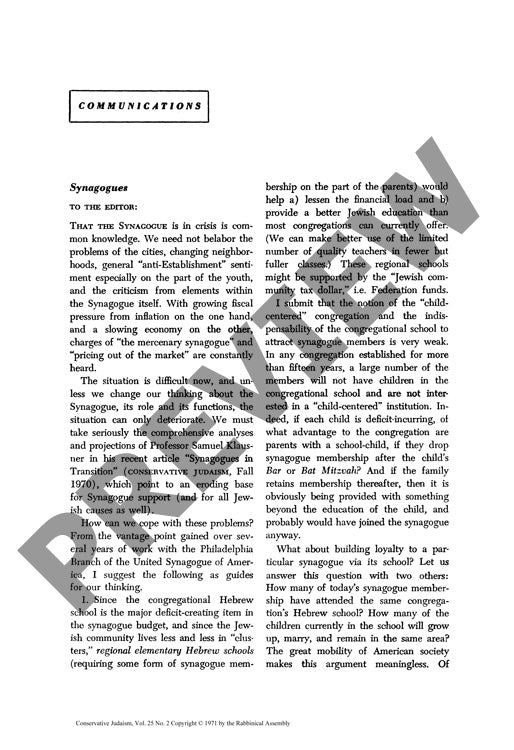Communications
Couldn't load pickup availability
American synagogues face an existential crisis as traditional child-centered models prove increasingly unsustainable. Through extensive analysis of the Philadelphia Branch of the United Synagogue of America, congregational Hebrew schools emerge as the primary source of financial strain, while demographic shifts and high community mobility undermine school-based recruitment strategies. Drawing from qualitative analysis of synagogue operations, including congregational demographics, cost-benefit assessments of Hebrew schools, and community mobility patterns, the research reveals fundamental misalignment between current institutional structures and contemporary Jewish community needs. To ensure long-term viability, synagogues must pivot toward adult-focused programming, emphasizing multiple-level adult education, Jewish cultural activities, and family-centered engagement. The findings support specific structural reforms: establishing regional elementary Hebrew schools with Federation funding and decentralizing worship services to foster greater personal involvement. These adaptations prove essential not only for strengthening American Jewish institutions but also for maintaining robust support for Israel, acknowledging the intricate relationship between domestic Jewish institutional health and broader Jewish communal priorities.

More Information
-
Physical Description
-
Publication Information
Published 1971
ISBN
-
Publication Credits

